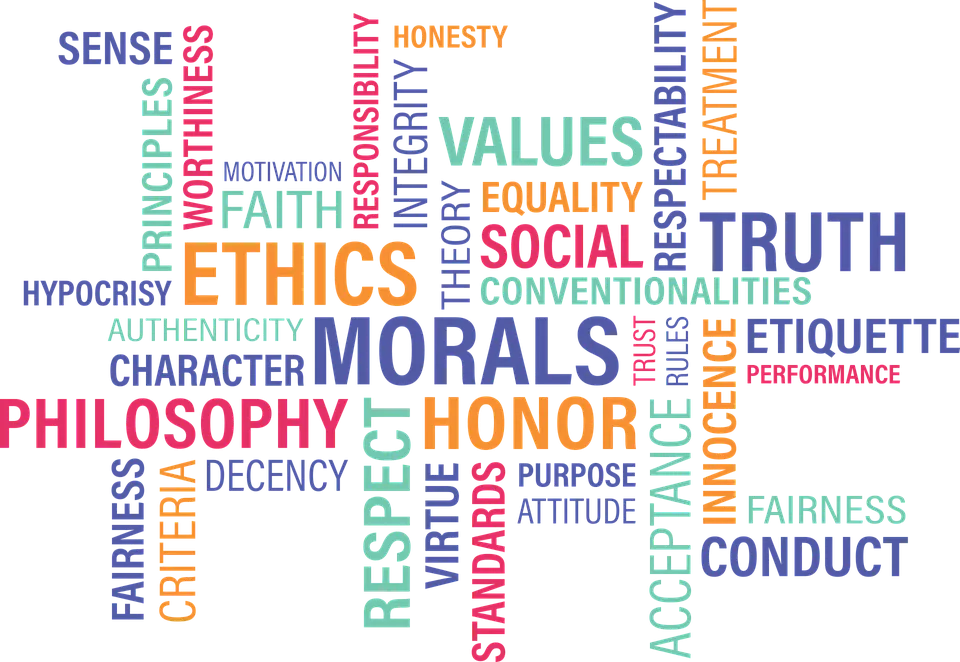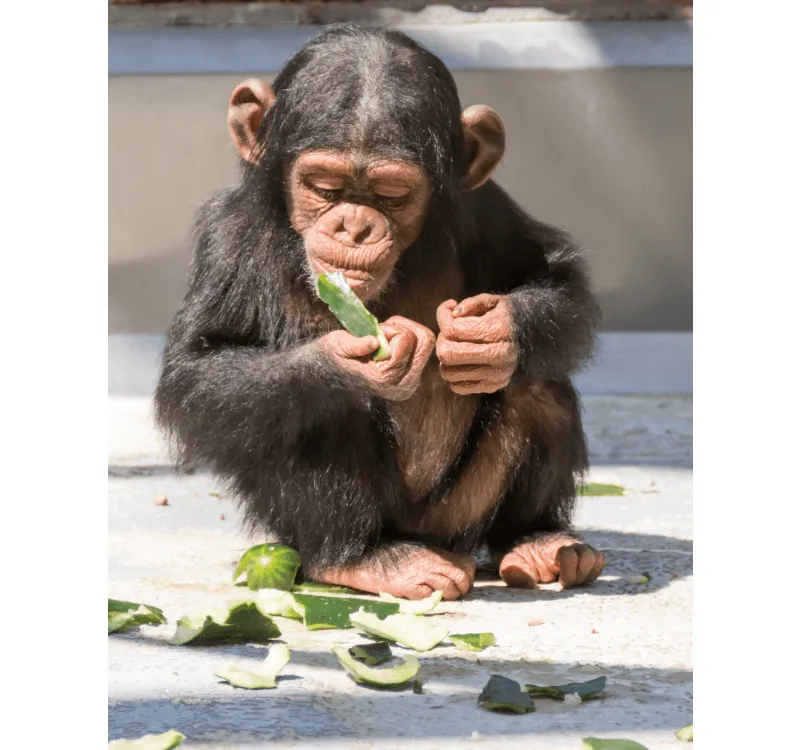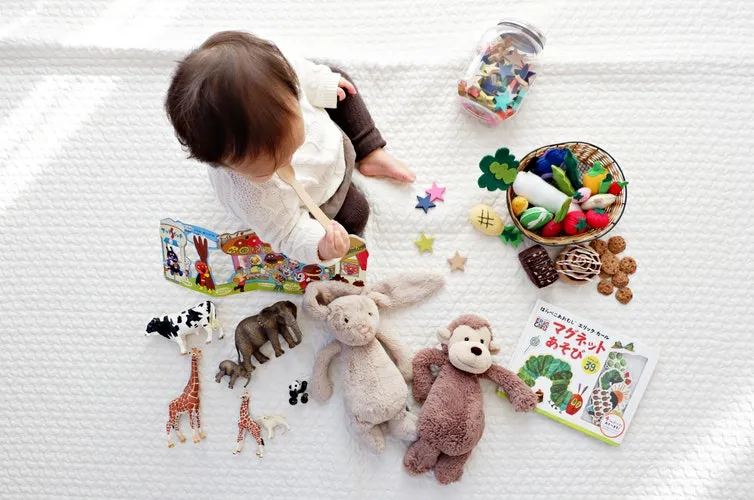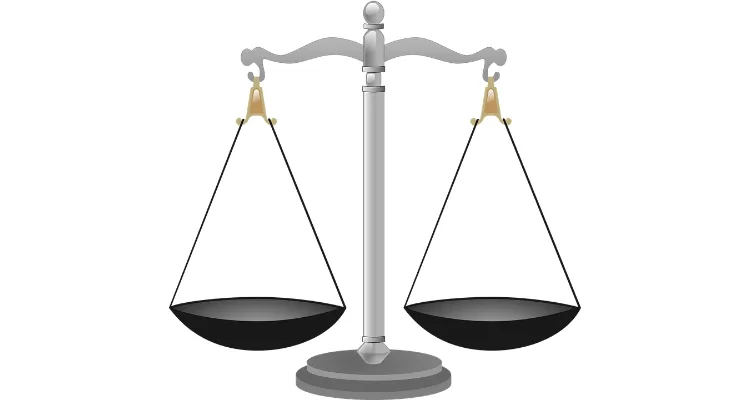
Meno asked Socrates:
Socrates, can you tell me, whether virtue is acquired by teaching or by practice; or, whether it comes to humans by nature, or in what other way?(Plato, Meno)
The debate about the origins of our moral beliefs is far from being a new one. At one end there has been the argument that human’s moral emotions are a product of a solid genetic basis that developed through our species’ evolutionary history. And, at the other, there is the notion that rather, moral understanding is obtained by means of experience and observation. I trust you understand that things more often than not are not so black and white. Especially when it comes to psychological processes.
This is why, I am particularly drawn to the latter part of Meno’s query: ‘or, in what other way?’
Chimps act Unjustly & Toddlers act Fairly

If instead of Socrates, Meno had asked that question to my 7 year-old nephew, he would have replied that definitely human virtue originates from the earache you get from your mum and dad. That is because the day he brought home his friend’s kinder-egg-surprise and confessed that his friend didn’t know about it, it’s a day he will not forget (his mum and dad are prone to overreacting 😐). According to this perspective the development of morality is then understood to be a consequence of acquired behaviours as well as the internalization of social values and standards [1]. This is certainly one of the correct ways of making sense of where our moral values come from. After all, our cultures are also determiners of what is right and wrong, what is moral and immoral. So much so that what is morally acceptable in culture ‘A’ might not be in culture ‘B’.
Further, humans have an innate ability to be encultured to a level that truly set us apart from other animals. By experiencing competition and cooperation, for instance, children develop a sense of fairness and justice [2]. Something which comparative research has shown through two and three year-old children’s demonstration of discomfort when receiving a greater reward than that of a friend who helped them to complete a shared task. While chimpanzees … well, let’s just say they are not that inclined to share succulent grapes with their collaborators 3. And, please note, it seems that whenever sharing takes place among them it follows the hierarchical organization of the group 4. It looks like fairness in the chimp world is a bit of a no, no! 🙊
Does this mean, then, that there is ‘something’ within us humans that gives rise to morality?
Not a Blank Slate

It appears so. Even more when we learn that babies as young as five-months old, subsequent to watching a short puppet show, when asked to choose between the good, helpful character or the mean, selfish one, overwhelmingly choose the former 5, 6. This is curious because at this age humans have not really experienced cooperation and competition. Following this line of thought social psychologist Johnathan Haidt, then, proposes that humans are born with ‘intuitive ethics’ which stem from psychological foundations that give rise to morality. One of the foundations (out of a total five) proposed by Haidt is Fairness / Cheating, which is at the basis of reciprocal altruism 7. You know how the saying goes … ‘you scratch my back, I will scratch yours’. That’s only fair …
Something that reminds me of an experience I had with a small child at the airport a couple of years ago. As I was sitting at the coffee bar’s table she came out of nowhere and handed her soft toy to me, as I received it she immediately pointed at my water bottle. Her young father was already coming towards us. I subtly remarked she might be thirsty (he might have been an inexperienced dad. You never know 😊). More interesting than my personal example, however, are the findings of the comparative study I mentioned earlier, which further showed that not only do three year-olds demonstrate discomfort when receiving more rewards than their peers, but they will only evenly share the marbles with their counterparts if they equally worked together throughout the activity to complete the shared task 8.
Now, you may be asking yourself what kind of practical information we can draw from such studies. My answer to you is: babies and toddlers are equipped with a great capacity to make accurate judgements about characters. Quite remarkable, right? So, we better watch our judgments and actions to set good examples to them, and gain their interest.
Are we born virtuous and then corrupted by the social world?

You might think that way when you see that children go from willing to share their toys with other infants, adults and even with strangers from when they are around eight-months old 9 to limiting this sort of behaviour mostly to friends, as they get older 10. Nevertheless, an alternative way of interpreting this turn of events is by understanding that rather than corrupted, our innate moral judgements become more sophisticated. This is how we, humans, evolve from mostly doing what we are told to do during our childhood years to developing our own set of (ideally, unbiased) moral codes later on in life 11. Research has revealed that as children reach six years of age they learn that aspects like age and height are not relevant when judging peoples’ actions 12. Also, at this age, children refuse to obey parents’ orders that involve stealing or hurting someone else [13].
The reality is that we are born with both selfish and competitive, as well as cooperative and fair predispositions, which have all proved to be adaptive during the challenges of our species’ evolutionary past 14. These tendencies are, then, further shaped, enhanced and/or supressed by the specific contexts under which we grow up, from our home environment to the large sociocultural world we belong to.
Meno would’ve been pleased to know :)

Reference List:
1 Skinner, B.F (1971) Beyond Freedom and Dignity, New York, Knopf.
2 Piaget, J. (1997) [1932]) The Moral Judgement of the Child, New York, The Free Press.
3,8 Collaboration encourages equal sharing in children, but not in chimpanzees.
4 Engineering cooperation in chimpanzees: Tolerance constraints on cooperation.
5 How infants and toddlers react to antisocial others.
6 Can babies tell right from wrong?
7,14 ‘Intuitive ethics’: how innately prepared intuitions generate culturally variable virtues.
9 Effects of familiarity and maternal attention on infant peer relations.
10 Preschool children’s food sharing with friends and acquaintances.
11 Moral stage and moralization: the cognitive developmental approach.
12 Distributive justice development: cross-cultural, contextual, and longitudinal evaluations.
13 Damon, W. (1977) The social world of the child, San Francisco, Jossey-Bass.


It has been a long time since I last posted here, and it felt really good writing again for the Steemit platform. My absence took much, much longer than I had initially planned (for various reasons). But now, I am healthy, have some spare time, am very eager to re-join the community and blog, and comment and … :)
Thank you ever so much for taking a few minutes of your time to read my post! I hope you have enjoyed it.
I wish you all a wonderful week ahead 😊🎔